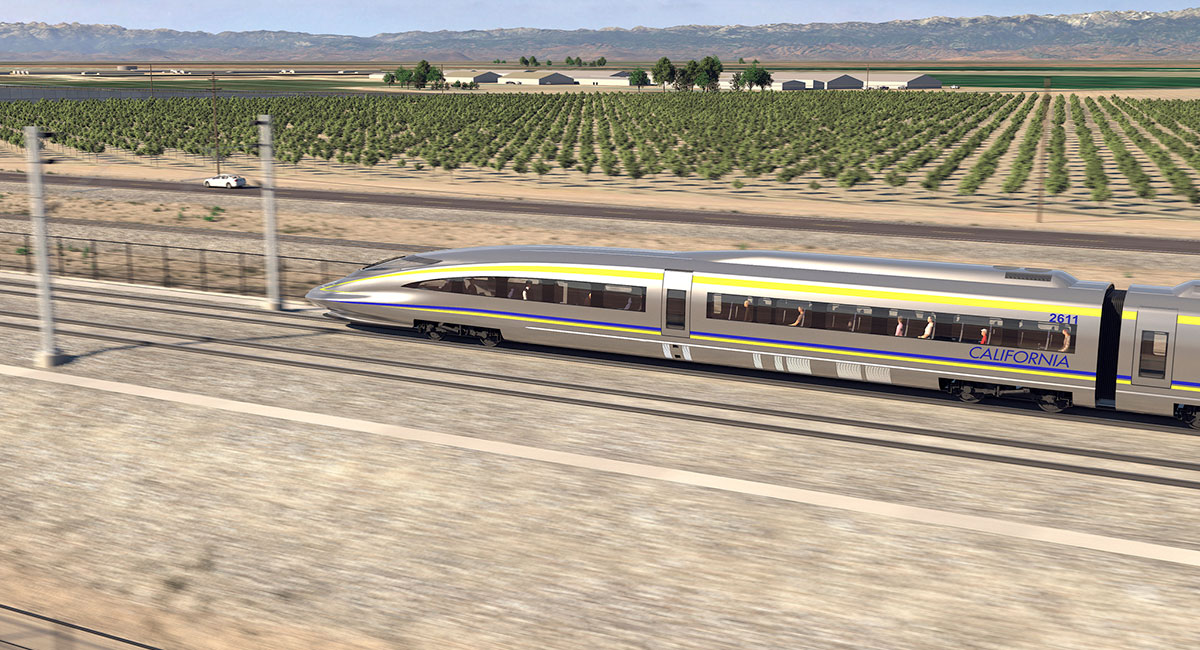“We have plans to build a railroad from the Pacific all the way across the Indian Ocean,” said President Joe Biden back on June 14. While his followers try to explain what the Delaware Democrat really meant, consider the problems of building a railroad on land, as in California’s vaunted high-speed rail project.
For a cost of $33 billion, as it was pitched in 2008, the Golden State’s “bullet train” would whisk passengers from Los Angeles to San Francisco in two hours and 40 minutes. The project was supposed to be completed in 2020, but as UCLA economics professor and Hoover Institution fellow Lee Ohanian notes, things didn’t quite work out that way.
In 2023, three years after the expected completion date, and 15 years after the original $9.95 billion bond issue, not one train has left the station and not a single route has been completed. As it turns out, the original $33 billion budget is inadequate to build the route from Bakersfield to Merced, not exactly an area of high potential ridership.
The cost of the full system, as Ralph Vartebedian of CalMatters explains, is now up to $128 billion, “leaving a funding gap of more than $100 billion for politicians to ponder.” State taxpayers also have a few issues.
California’s High Speed Rail Authority boasts a Sacramento headquarters and three regional offices. Board members include Lynn Schenk, a former congresswoman and chief of staff for Gov. Gray Davis. Board member Martha Escutia is a former state senator. Board member Anthony Williams served as legislative secretary to current Gov. Gavin Newsom and has worked for Sens. John Burton and Darrell Steinberg, the current mayor of Sacramento.
Back in 2012, the board approved a 3 percent pay raise for chief executive Jeff Morales, boosting his $365,000 salary by about $11,000. The raise came before any work had started on the first 30-mile stretch. By 2016, with not a single train on track, the highest salary had moved up to $393,072. The average salary at California’s High Speed Rail Authority was $82,423, a full 76 percent higher than the national average. Nice pay for a project that is “the very definition of a boondoggle,” and worse.
Even if completed as originally planned, the bullet train would be slower and more costly than air travel and still not get people where they want to go. For Lee Ohanian, it’s “perhaps the greatest infrastructure failure in the history of the country” and “nothing short of a betrayal of Californians.” From the inception, the bullet train was a “fantasy,” and “the only reasonable decision is to end a project that should never have begun.” For their part, taxpayers should not expect it to end any time soon.
Federal Transportation Secretary Pete Buttigieg is on record that California’s high-speed rail project could “potentially” be funded by the pending $2.3 trillion infrastructure program.” In 2021, the Biden administration restored nearly $1 billion, but nobody is calling “all aboard.”
House Speaker Kevin McCarthy, who hails from Bakersfield, contends that the federal government should not allocate any more money to the project. On the other hand, state politicians have an alternative.
For the new span of the Bay Bridge, they turned down federal money and hired a Chinese company that had never built a bridge. The project came in 10 years late, $5 billion over budget, and riddled with corrosion, bad welds, breaking rods, and such. When apprised of the safety issues, Gov. Jerry Brown said, “I mean, look, s#$% happens.” Abolhassan Astaneh-Asi, professor of structural engineering at the University of California, Berkeley, declines to use the bridge.
Maybe Joe Biden, who believes the Chinese are “not bad folks,” could put in a word with Xi Jinping to fund the train as an example of CCP–U.S. collaboration. Meanwhile, Biden claims his railway across the Indian Ocean is a response to China’s Belt and Road Initiative. “We have plans to build in Angola, one of the largest solar plants in the world,” the Delaware Democrat added. “I could go on but I’m not. I’m going off script. I’m going to get into trouble.”








